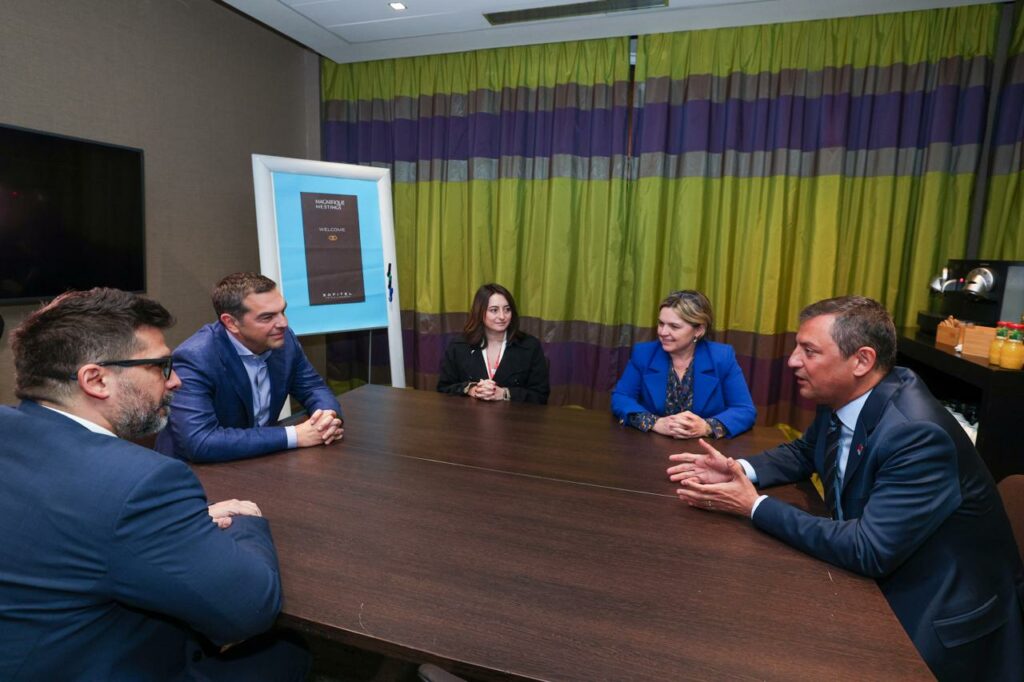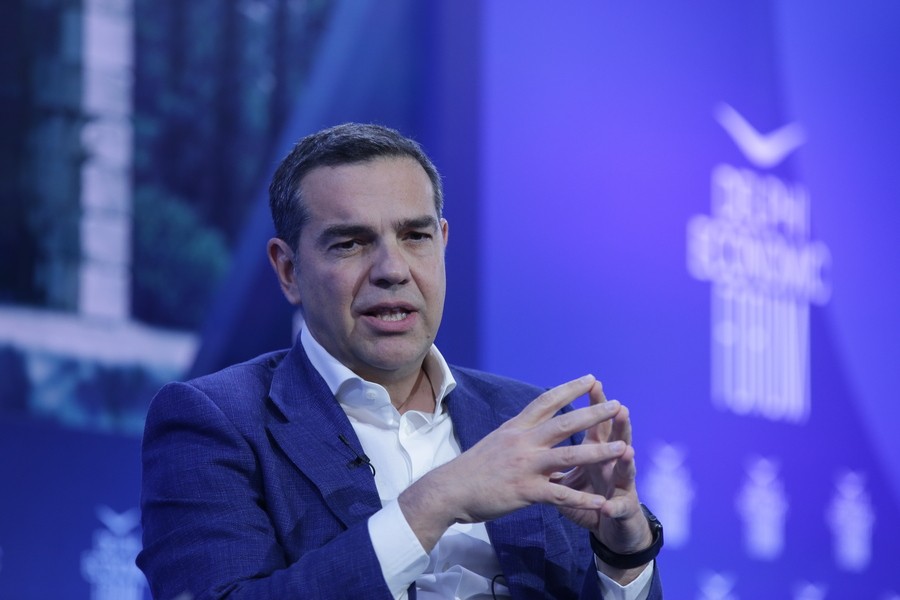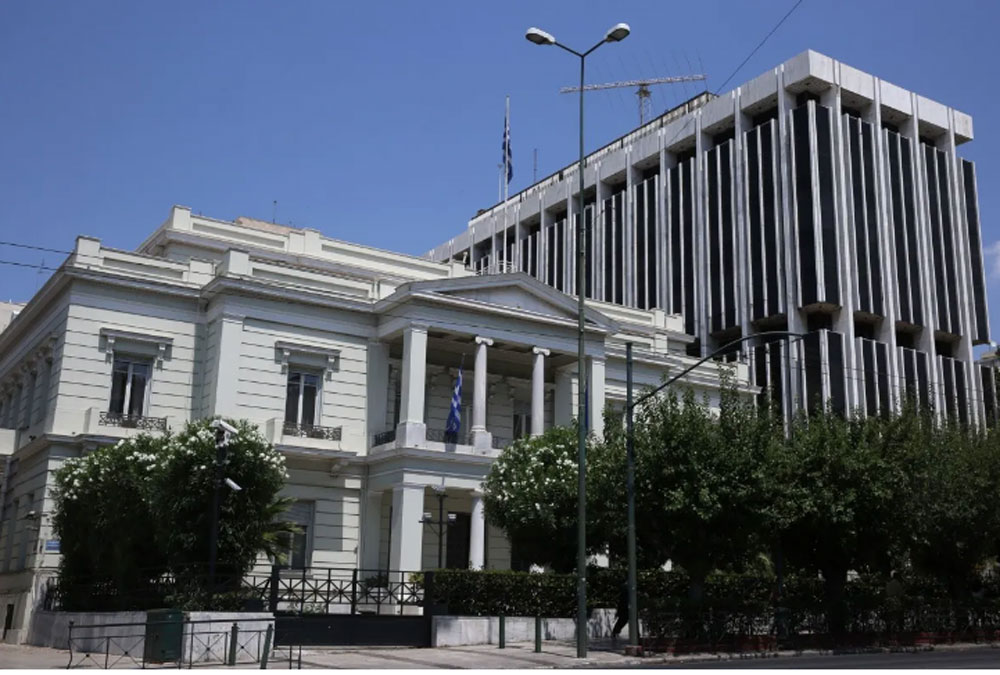
As neighbours we need to keep dialogue channels open, Turkish Ambassador Ozugergin tells ANA
“We are very much looking forward to the visit of Greek Prime Minister Alexis Tsipras to Turkey,” Turkish Ambassador to Greece, Burak Ozugergin, said in an interview with the Athens-Macedonian News Agency (ANA) on Monday.
“It is only natural for leaders of neighbouring nations to visit each other often and talk about matters of mutual interests and concerns,” he noted adding that this way you can better understand the hopes and worries and ideas of the person sitting across the table from you.
The full interview follows:
1. What are the expectations of the upcoming visit of Greek Prime Minister Alexis Tsipras to Turkey and his meeting with the Turkish President?
We are very much looking forward to this visit. It is only natural for leaders of neighbouring nations to visit each other often and talk about matters of mutual interests and concerns. It is true that nowadays we have all kinds of new means of informing each other, but I am a firm believer in face to face communications. This way you can better understand the hopes and worries and ideas of the person sitting across the table from you. And that is how we can push forward with a positive agenda.
2. How would you describe the level of current Greek-Turkish relations and the prospects of resolving the problems according to international law?
I know that diplomats are supposed to be optimistic in nature. But I really do believe that we have better days to come, especially if we can break out from our habits. There are indeed some outstanding issues between our countries. By the same token, it would be difficult to find two neighbours anywhere in the world that claim to have absolutely zero issues between them. The real question is, do we have the will to address these issues with a view to solving them, or do we prefer to keep on complaining about our neighbours.
There seems to be a belief in Athens that Turkey does not wish to refer to international law to address problems with Greece. Nothing could be farther from the truth. We have always said that we are ready to employ any of the dispute-solving mechanisms shown by the UN system -negotiation, arbitration, recourse to the judiciary, etc. Does that surprise you?
3. Greece has no claims against Turkey, but Turkey has in relation to the islands in the Aegean. Why?
I have been dealing with Aegean issues for a while, and sometimes I am frankly amazed how the feelings and concerns on one side are mirrored on the other side. So the best way to put those anxieties behind us will be to sit down and talk, and solve what we can directly, and agree to let international law take care of the rest.
4. There is a decision by the Turkish Parliament to declare war that is casus belli, if Greece makes some decisions. Would not it be a very good move to recall this threat?
This is a good question, and here I refer you to the point I made earlier about mirrored concerns. The declaration of the Turkish Parliament back in the 90’s was not made in a vacuum. It was a response to a step taken by the Greek Parliament just a week before. So it was a reaction to what we felt was a possible move that would greatly violate our legitimate rights and suffocate us in the Aegean. Again – as neighbours we need to always keep the dialogue channels open to make sure we understand, and empathise with the positions of others. This vicious circle that we find ourselves in is probably not going to solve anything for a long long time. The time has come for the representatives of the peoples, the parliamentarians, to hear each other out instead of turning their backs to each other. Indeed – both peoples simply wish to live in peace and prosperity, and our elected members of parliament should help make that happen.
5. Another thing that has impressed me is that there was a period that the overflights and violations of the Greek airspace, and the other events almost every day in the Aegean Sea, had been greatly reduced. Recently they have grown a lot. Why?
I would sincerely ask you to look into what is actually happening in the Aegean. I encourage you to understand what it is that the Turkish flights mean, and what does international law say about it. Again, it might surprise you to hear that it is actually Turkey that suggests that adherence to international law would help to reduce tensions.
6. What are the prospects for economic cooperation between the two countries?
I noticed that you put this question all the way down near the end of the interview. Perhaps this reflects the mood here when it comes to matters having to do with Turkey. But there are so many areas of cooperation and collaboration that it should be obvious. Both countries have relative strengths in the larger region that, when put together, could generate a terrific multiplying effect. Don’t forget that you are neighbours with one of the top 20 largest economies in the world. There is a dynamism in Turkey that you just have to see to understand.
I really believe that a greater level of economic interdependence could make the problems that we talk about relatively small. After all, other nations in Europe and elsewhere made conscious decisions to leave troubled times behind and became partners to the great benefit of their citizens; what is stopping us?
7. The Greek Parliament recently ratified the Prespa Agreement, ending a long-standing diplomatic issue. Greece opens a new chapter in its relationship with North Macedonia. What is your opinion about this development?
We welcome the approval of the Prespa Agreement recently. This will provide a solution to the name issue as well as other matters of interest to both countries. And that in turn will hopefully pave the way for better relations in our region as a whole. We need more cooperation and integration, and it is good to see that dialogue succeeded in the end. We have always supported the integration of the Balkan countries into European and western political and economic structures.
8. The international community considers necessary to launch of a new round of talks on the solution of the Cyprus problem, according international law and UN decisions. How does Ankara approach this prospect?
The Cyprus issue has been on the table now for more than half a century. It is time to arrive at a solution that would benefit both the Turkish Cypriots and the Greek Cypriots. Here again we have to break free from slogans and mantras. You have to realise that everything that could be said has been said, by so many eminent personalities throughout these years. So many different ideas, plans, agreements, statements have been put forward; but still a just and viable solution escapes us. The two sides on the island must therefore first come to an honest understanding of what they really want, and how they want to achieve that.
Source: ANA-MPA
Everything is ready for the launch of Hellas Sat 4: With the flags of Greece and Cyprus

